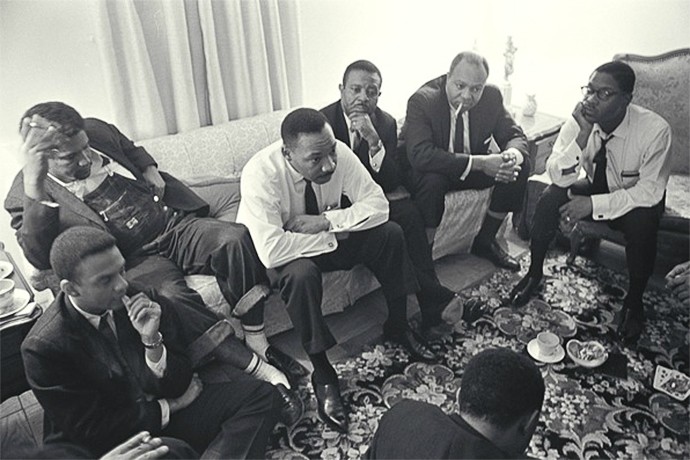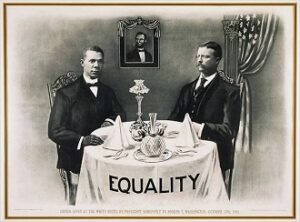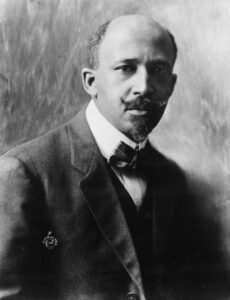For twenty years I have sprinkled discussions of the black social gospel into various books while imploring scholars that we need a book on this tradition. Finally I applied the imploring to myself, because the greatest legacy of the justly renowned social gospel movement is not the one recounted in books about Walter Rauschenbusch, Washington Gladden, Jane Addams, the Federal Council of Churches, John Ryan, and all that.
A black tradition of the social gospel arose during the same period as the famous white one. It had its own identity and integrity, while sharing important things with white progressive Christianity. Martin Luther King Jr. was steeped in it. His role models were second-generation black social gospel leaders, and their role models were black social gospel founders. The things that defined the black social gospel made it distinct, controversial, and historic. This tradition has an unsurpassed legacy in American religious history by virtue of its role in the civil rights movement. Yet it was ignored for decades and lacked almost any literature until recently.
Numerous conventions have long kept the black social gospel from being remembered: supposedly, the social gospel had only a few proponents among black Americans, and they had no impact; supposedly, black churches were too provincial and conservative to espouse protest politics and social gospel theology; supposedly, Booker T. Washington and W. E. B. Du Bois were not involved with the social gospel, so the social gospel does not illuminate Washington versus Du Bois; supposedly, religious intellectuals no longer mattered by the end of the nineteenth century, so it doesn’t matter if we ignore whatever black religious intellectuals might have existed; supposedly, the social gospel petered out in the 1930s anyway, so forget the social gospel. And, finally, the social gospel movement that did exist—the white one—did not concern itself with racial justice.
All these conventions are wrong.
The black social gospel had numerous proponents in its early years, notably Episcopal cleric Alexander Crummell, Methodist clerics Reverdy Ransom, Alexander Walters, and Richard R. Wright, Jr., Methodist anti-lynching crusader Ida B. Wells-Barnett, and Baptist clerics William J. Simmons, George W. Woodbey, and Adam Clayton Powell, Sr.
They belonged to embattled minorities in their denominations, because the social gospel was divisive and it threatened to get people in trouble. The founders and their successors fought hard for the right to advocate progressive theology and social justice politics. Washington versus Du Bois was at the center of the argument, until the Du Bois faction prevailed.
Afterwards, the next generation of black social gospel leaders—Mordecai Johnson, Benjamin E. Mays, George Kelsey, J. Pius Barbour, Vernon Johns, Adam Clayton Powell Jr., and Howard Thurman—espoused social gospel theology from the beginning of their careers. All were Baptist ministers, and all importantly influenced King. These figures taught King and other founders of the Southern Christian Leadership Conference (SCLC) to harvest the social justice potential of the churches. The King generation, too, was long on Baptist social gospel ministers, plus others including Methodist James Lawson, Congregationalist Andrew Young, and Episcopalian Pauli Murray. They provided the social justice theology that the civil rights movement spoke and sang, leaving an immense legacy.
But the black social gospel is rarely accorded the status of a tradition, let alone an important one.
King did not come from nowhere. Since the 1980s, scholars have emphasized that King grew up in Southern black Baptist religion and he exaggerated the influence of his white liberal seminary education when he described his intellectual development. This interpretive shift yielded richer accounts of King’s formation, but some scholars wrongly denigrated King’s seminary education, claiming that its theological liberalism and personalist philosophy were irrelevant to King’s black church contexts. King himself treasured his graduate education, which he considered to be powerfully relevant to his ministry and movement career. Moreover, the idea that King only pretended to care about his graduate training misses his distinct brilliance and the influence of the black social gospel upon him.
King soared to prominence because he brilliantly brought together the two worlds he inhabited, which enabled him to unify the old Northern-based and new Southern-based civil rights movements. He learned from his teachers to prize modern intellectualism, hold fast to core gospel convictions, and forge coalitions for social justice. When lightning struck in Montgomery, King was given the opportunity to surpass his teachers. He far surpassed them by holding together new and old religious and activist communities that had no history of working with each other.
The founders were compelled to ask what a new abolition would require. In their time, Reconstruction was abandoned, racial caste was codified and institutionalized, and racial terrorism backstopped the caste system. Early black social Christianity had four ideological camps that battled over politics and the social mission of Christianity. All four existed before Du Bois emerged as a protest leader. The largest group espoused the accommodating social ethical religion of Booker T. Washington, trading black dignity and rights for a season of economic opportunity. The nationalist group said that blacks had to have their own nation, or failing that, a black civilization, because white America was hopelessly hostile to black Americans. The third group espoused social justice politics and modernist theology, joining Du Bois in the Niagara Movement and the NAACP. The fourth group tried to have it both ways in the battle between Washington and Du Bois, contending that both were essential to racial reform.
The black social gospel that led to Johnson and King emerged from the contention among these groups, coming mostly from the third and fourth groups, plus a tiny Socialist flank, although some nationalists and former Bookerites ended up in it. It started with Simmons, a pioneering ecumenist; Crummell, a nationalist intellectual; Henry McNeal Turner, a Methodist bishop and nationalist; and Ransom, the Du Bois figure in early black social Christianity. It coalesced in the group that joined Du Bois in the NAACP, notably Ransom, Walters, Wright, Wells-Barnett, and Powell.
The black social gospel founders that helped to create the NAACP were willing to work with white liberals to abolish Jim Crow, but they did not consider themselves to be shorter on racial pride or prophetic urgency than the nationalist camp. To them, fighting for inclusion and democracy was more radical and liberating than anything imagined by the nationalists, and the Booker T. flank discredited itself by refusing to fight. This story shaped the succeeding generation of black social gospel leaders, who taught that the struggle for racial justice would go nowhere lacking support from the churches.
King was steeped in the defining black social gospel claim that the church had to deal constructively with modern intellectual criticism, emphasize the social ethical teaching of Jesus and the Hebrew prophets, struggle for social justice, and defy white racism. His teachers blended abolitionist and social gospel interpretations of the Bible and Christian theology. They took up the usual social gospel debates over industrialization, economic justice, migration, and modern challenges to religious belief. But black social gospel leaders addressed these things very differently from white progressives, for racial oppression trumped everything in the African-American context and refigured how other problems were experienced.
The black social gospel is overdue to be recognized as a tradition of thought and activism. Religious historians David Wills, Ralph E. Luker, and Calvin Morris did pioneering work in this area, but only recently has the trend of scholarship shifted in this direction, building on the work of black religious scholars Anthony Pinn, Randal Jelks, Lawrence Edward Carter, Barbara Dianne Savage, Wallace Best and others.
The founders did not take over the black churches, they fought rearguard legitimacy battles through the 1930s, and they provided only modest ballast for the early NAACP. The tradition they founded had all the problems that go with being overwhelmingly male, clerical, sexist, middle-class, and churchly. Even the most radical and militant among them preached variations of what is today called the “politics of respectability.”
But the founders started something immensely important, refusing to be denigrated. They taught that God favors the oppressed and excluded. They preached about equality, democracy, peacemaking, and Jesus loving all the children. They puzzled that white Christians ignored the central gospel teachings. And they kept alive the hope of breaking white supremacy.
Had King or his teachers accepted the standard indictment that black churches were too conservative to promote protest activism, there would have been no Birmingham or Selma. The SCLC was distinctly geared for the work of America’s greatest liberation movement. It took an organization of preachers, long on high-voltage personalities, to raise hell in Birmingham, St. Augustine, Selma, and Chicago, forcing white America to reckon with its long record of acting as though black lives do not matter.







